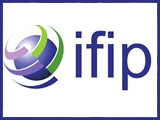IMDEA Networks

Event Category: External Presentation (IN Speaker)
BASICS: Scheduling Base Stations to Mitigate Interferences in Cellular Networks
The increasing demand for higher data rates in cellular network results in increasing network density. As a consequence, inter-cell interference is becoming the most serious obstacle towards spectral efficiency. Therefore, considering that radio resources are limited and expensive, new techniques are required for efficient radio resource allocation in next generation cellular networks. In this paper, we propose a pure frequency reuse 1 scheme based on base station scheduling rather than the commonly adopted user scheduling. In particular, we formulate a base station scheduling problem to determine which base stations can be scheduled to simultaneously transmit, without causing excessive interference to any user of any of the scheduled base stations. We show that finding the optimal base station scheduling is NP-hard, and formulate the BASICS (BAse Station Inter-Cell Scheduling) algorithm, a novel heuristic to approximate the optimal solution at low complexity cost. The proposed algorithm is in line with the ABSF (almost blank sub-frame) technique recently standardized at the 3GPP. By means of numerical and packet-level simulations, we prove the effectiveness and superiority of BASICS as compared to the state of the art of inter-cell interference mitigation schemes.
Read more arrow_right_alt5G on stage: this technology will change your life (and you don’t know it yet)
University Carlos III of Madrid (UC3M) participates in the seventeenth edition of the Madrid Science Week with more than thirty activities (all free-of-charge ) that will offer a first-hand knowledge of the Institution's R&D program. IMDEA Networks is collaborating with UC3M in the staging of a multimedia, theatrical and informative show that explores the effects of 5G technology in our everyday lives. The show will held on November 7th in the Auditorium of the UC3M.
Read more arrow_right_altAccording to my calculations… the house always wins!
Ander Galisteo, a PhD student in Telematics Engineering at the research institute IMDEA Networks, has been invited to give this talk aimed at scientific dissemination within the program "Young Scientists 2017" of the Madrid Science.
Read more arrow_right_altNetwork Sharing: An Energy-Efficient Option For European Mobile Network Operators
We investigate the energy saving made possible by the network sharing approach, whereby all (or significant parts) of a network infrastructure are shared by different network operators. Our study reveals that in most European countries the amount of energy necessary to run mobile networks can be reduced by 35 to 60%.
Read more arrow_right_altKeynote: Challenges and Solutions for Millimeter-Wave Wireless Networks
One of the most promising options to significantly increase data rates in future wireless networks is to vastly increase the communication bandwidth. Such very high bandwidth channels are only available in the extremely high frequency part of the radio spectrum, the millimeter wave band (mm-wave).
Read more arrow_right_altFuture Adaptive Communication Systems Technology
Tablets and smartphones have become the favorite gateway to the Internet for a majority of users. Being equipped with plenty of sensors, these devices enable far more than traditional web browsing.
Read more arrow_right_altIFIP WG 7.3 Performance 2014 – The 32nd International Symposium on Computer Performance, Modeling, Measurements and Evaluation
The IFIP Performance conference aims to bring together researchers interested in understanding and improving the performance of communication systems by means of state-of-the-art quantitative models and solution techniques.
Read more arrow_right_altExpressive and efficient data path provision
One of the most important achievements of Software-Defined Networking is a possibility to redefine existing invariants in network management, This talk covers three important aspects of data path provision: (1) what should be flexible at the network element level to express various economic models and how different characteristics impact desired objective functions?; (2) how to represent this expressiveness efficiently on data plane; and 3) new abstractions that allow to integrate services from heterogeneous controllers without standardization of Northbound API.
Read more arrow_right_altUnderstanding the Reachability of IPv6 Limited Visibility Prefixes
The main functionality of the Internet is to provide global connectivity for every node attached to it. In light of the IPv4 address space depletion, large networks are in the process of deploying IPv6. In this paper we perform an extensive analysis of how BGP route propagation affects global reachability of the active IPv6 address space in the context of this unique transition of the Internet infrastructure. We propose and validate a methodology for testing the reachability of an IPv6 address block active in the routing system. Leveraging the global visibility status of the IPv6 prefixes evaluated with the BGP Visibility Scanner, we then use this methodology to verify if the visibility status of the prefix impacts its reachability at the interdomain level. We perform active measurements using the RIPE Atlas platform. We test destinations with different BGP visibility degrees (i.e., limited visibility - LV, high visibility - HV and dark prefixes). We show that the IPv6 LV prefixes (v6LVPs) are generally reachable, mostly due to a less-specific HV covering prefix (v6HVP). However, this is not the case of the dark address space, which, by not having a covering v6HVP is largely unreachable. When talking about the results we present in this paper a better explanation of trace route and some basic concepts of BGP will be provided.
Read more arrow_right_altThe Throughput of Underwater Networks: Analysis and Validation
In this talk, we discuss a theoretical framework to evaluate the throughput of underwater networks over an ensemble of node topologies and propagation environments. We start with a review of the properties of underwater acoustic communications.
Read more arrow_right_alt











Recent Comments